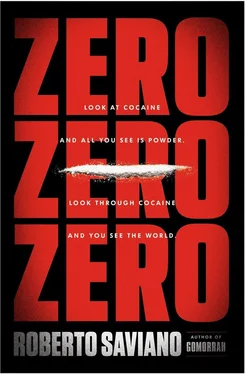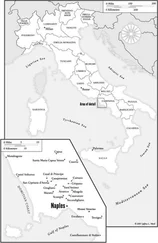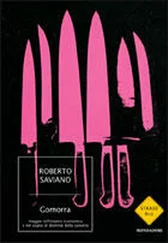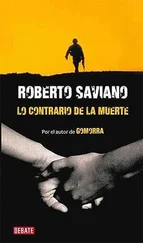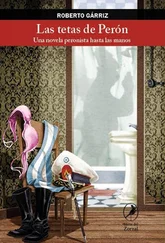During the Soviet era, most of the drugs in Russia were locally produced cannabis or opium derivatives, products diverted from pharmaceutical factories and offered on the illegal drug market. In some parts of the country you couldn’t even get a buzz except by sniffing toxic substances such as glue, acetone, or gas, or by using powerful anesthetics with hallucinogenic effects. When the Soviet regime collapsed, imports proliferated, prices dropped, and the drugs of the West — cocaine and ecstasy — finally made their way onto the market. At first cocaine use was limited to those Russians who could afford to spend the equivalent of three months’ average salary. There was an invasion of substances that found fertile ground in part because of the breakup of neighboring states: wars, open borders, and an army of illegal immigrants unable to find work in the legal economy. For many of them — as in the rest of the world — drug dealing was the only way to earn a living. But the decisive step came with the opening toward the Western Hemisphere, first the United States and Canada, then Latin America and the Caribbean. That part of the world had a high demand for arms, and Russia a notable supply of Soviet military weapons. That part of the world had a massive supply of drugs and a need for money laundering, and Russia, a sizable demand for drugs and a significant supply of outlets for dirty capital. It’s a done deal. At first it was merely a convergence, a symmetrical exchange between two sides of the ocean: Soviet arsenals were making organized crime in the former Soviet empire richer and more powerful, just as the white powder was doing for the Central and South American cartels. But business contacts with the narcos and the exponential growth of profits, combined with the shared necessity to reinvest and launder money, strengthened their bonds. In Latin America and the Caribbean especially, the Russians found the same conditions of governmental weakness that had favored the Mafija’s growth: corruption, widespread illegality, porous banking systems, accommodating judges. Added to this was the ease with which Russian bosses could obtain citizenship, thanks to obliging governments.
The Russian organizations proved useful to the narcos looking for less risky money-laundering networks and methods — services for which they kept up to 30 percent of the earnings. The Russian mafiosi’s other privileged activities in Latin America were prostitution, extortion, usury, kidnapping, fraud of every kind, counterfeiting, child pornography, and car theft. Solncevskaja, Izamailovskaja, Poldolskaja, Tambovskaja and Mazukinskaja are at home in Mexico, as are mafia cells from former Soviet bloc countries.
The multibillionaire Mogilevic was declared persona non grata in Hungary, the United Kingdom, the Czech Republic, and other Western countries. But their decisions could not undo what he and his associates had managed to create in those few decisive years of undisturbed freedom. It doesn’t matter much that he returned to Russia, as did the Little Jap, who, after being released from a U.S. penitentiary, was extradited to stand trial for the murder of two Turks on the eve of his departure for America. After the trial, in which he was exonerated for lack of evidence, Ivan’kov was free to dive back into the streets of Moscow: All the witnesses swore they’d never seen his slanted eyes. He lived quietly, without drawing attention to himself, until July 2009, when a killer gunned him down in front of a Thai restaurant. A new feud had broken out, he’d chosen the wrong side, and this time he didn’t get away with it. A thousand or so people joined in Orthodox chants and prayers at a cemetery, which was guarded on the outside by armed police fearing reprisal by the rival group. Brotherhoods from all over the former Soviet Union, from Georgia to Kazakhstan, laid wreaths, and vory from the entire country came to pay their final respects to one of their own, one of the last leaders of the old guard. But Mogilevic was missing. He’d only recently been released from jail and may have preferred to keep his distance from his old friends.
The fact that Mogilevic, after years of living so undisturbed that he even agreed to be interviewed by the BBC, was arrested in 2008 for tax fraud perpetrated through a chain of beauty supply shops, almost seems like a joke. If so, the one doing the laughing was the “world’s policeman”—the Americans. In 2009 the FBI add Mogilevic to their ten most wanted list, alongside Mexican cartel killers, pedophiles, people who exterminated entire families. There are much more serious charges, such as criminal association, but the one given the most play is the YBM Magnex scam. It doesn’t much matter what they use to nail him as long as the charge will hold up in court. It’s the same technique that’s been used since Al Capone’s Chicago days; it works because the implacable U.S. prison regime is often more feared than the chance of death: The Colombian cartels started crumbling when narcos began being extradited to the United States. Mogilevic has already been jailed in Russia, but Russia and the United States do not have an extradition treaty. He’s eventually released on bail, for once paying openly and legally. The spokesperson for the ministry of the interior declares that the accusation is not serious enough to prolong his arrest. About two years later the judges decide to drop all charges. Why was Semën Mogilevic held in a Moscow jail for a year and a half? There are lots of theories. The most delicate one has to do with the dispute over gas supplies between Russia and Ukraine, where in addition to Gazprom and Naftogaz Ukrainy — the energy giants controlled by their respective states — there’s a third company, registered in Switzerland: RosUkrEnergo, 50 percent of which belongs to Gazprom while the other half can be traced to a Ukrainian oligarch, Dmitro Firtaš. RosUkrEnergo is the joker, in fact, the card that puts an end to the hostilities that in 2006 produced a brief shutdown in the flow of gas from Russia to Ukraine, which caused huge damages throughout Europe, since their energy supplies have to go through Ukraine’s conduits. RosUkrEnergo meets Gazprom’s price and then resells for a third of that in Ukraine. It manages to maintain this imbalance by buying Turkmen gas, which is cheaper, but also because it is licensed to sell on the world market without a fixed price. In 2008 Julija Timošenko, whose rise to prime minister is linked to her role in the Orange Revolution, adopts a tough stance with Vladimir Putin. One of her most stubbornly held objectives is the exclusion of RosUkrEnergo, since there is no need of an intermediary between Gazprom and Naftogaz. But the crisis hasn’t yet reached its peak. In early January 2009, due to the Ukrainian energy company’s debts to Gazprom and RosUkrEnergo, once again Russia stops the flow of gas to Ukraine and drastically reduces supplies to the rest of Europe, threatening to bring the economy of the entire continent to its knees and to let its people freeze in the dead of winter. Slovakia declares a state of emergency. The crisis lasts for over two weeks and starts to become worrisome even for those countries able to plug the leak through other channels. On January 17, after increasingly feverish discussions in Moscow involving leaders of the European Union, the Russian and Ukrainian prime ministers finally reach a ten-year agreement that, among other things, stipulates the exclusion of RosUkrEnergo. Yet it is precisely because of that agreement, which she fought for with such determination, that Julija Timošenko will stand trial in 2011 and be condemned to seven years imprisonment for abuse of office, an offense that the Ukrainian parliament decriminalizes in February 2014. Ex-president Viktor Janukovic, who was deposed during the popular revolt known as Euromaidan, and who had defeated Timošenko in the 2010 elections, would see that RosUkrEnergo received billions of dollars in compensation for supplies lost because of the Timošenko agreement.
Читать дальше
